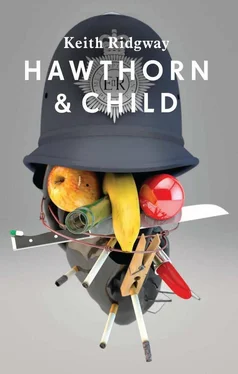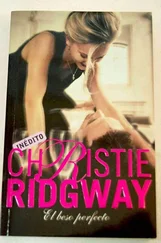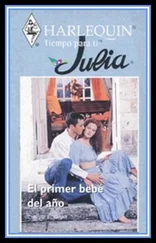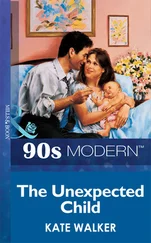Boyfriend? Or husband?
I wasn’t sure.
A marvellous tunnel vision stretched in front of me. At a stationery shop I bought index cards and a large white board on a tripod. I rearranged the furniture in the flat. I was no longer bothered by Rosemary’s existence, except that it provided a possible route to a policeman. I forgot about Stanley, and money. I forgot about the rent and Mr Malik and the morose Namjeev. I forgot about the clatter from upstairs, the music from downstairs. I worked through it. I worked through everything. There was a single focus to my days. It was, I noted with satisfaction, a state of mind not unlike that of being engrossed, as a reader, in a good book.
There was, to my surprise, a fantastic amount of information freely available online about the Olympic site and the construction process. I studied all of it, looking for a way in. And then I emailed them, asking for one. There was some sort of cultural liaison division within the public relations department of the Olympics infrastructure. I received an automated reply telling me that they required references, accreditation of some sort, a reason for my curiosity. I made a couple of nagging phone calls to Stanley and procured a simple letter of introduction, stating my ‘considerable reputation’, and listing the three awards I have managed to win — two in Japan that nobody understands, and one in Portugal that I still suspect was a case of mistaken identity. Three nagging emails eventually produced something similar from my last editor at Jackson & Pile, who rounded off her appeals for me to be granted the access and attention due any serious writer with a rather, I felt, pointed and legalistic declaration that I was not currently under contract with them and that whatever I was working on was not a commission, and that they had no legal, moral or business responsibility for me whatsoever. But it seemed to do the trick. The next day I had a phone call from an ebullient Sally who asked me what it was I was working on.
— A novel.
— Oh lovely. Set at the Olympics?
— Yes. Well, yes.
— What sort of novel?
Something in her tone gave me pause.
— It’s the story of a local Stratford family and their athletic son, and his dream of competing at the Olympics, and his … about how his dream … against the odds … comes true. A sort of heart-warming comedy.
— Oh what a marvellous idea!
Sally told me they had one of their regular site tours the coming Saturday at 8am. Journalists, for the most part. Would I be interested in coming along?
I drew a breath. In my high disfigured room, looking out at Mr Malik’s poplar tree, I imagined the small pleasures of success. A house. Silence. Travel. A clean face. No noise from downstairs in the evenings. No noise from upstairs. No cockroach corpses in the hallway. My own paint job in the bedroom, art on the walls, a new computer. No scratching in the wall space as I lay awake. A new jacket, new boots. A spontaneous train to Paris. My own name set down in the big book.
— Good morning everybody! I’m Sally! Welcome to London 2012!
The journalists laughed. The Olympics people beamed.
Sally herself welcomed me, looked me in the eye, looked at my passport, and then at her clipboard. She wrote my down passport number.
— It’s so good of you to come Clive. So good.
Next, a young man took my photograph. I was passed to the next young man. He searched my shoulder bag, taking out everything, putting everything carefully back. I walked through a scanner of some sort. Not quite like an airport scanner. There was no need for taking off shoes or belts or removing wallets. But they had a look at my phone. Then I had to sign two forms. Insurance, I was told. Finally, one of them, calling me by name, gave me a hard hat and a bright yellow jacket with VISITOR emblazoned on the back, while another handed me a laminated card, still warm, with the photo they had just taken of me, my name, date of birth, nationality, and the legend NOVELIST (FREELANCE).
I could not be anyone other than myself.
— This is a print journalists’ visit, so we ask you please to refrain from photography. This is purely a security measure. Thank you!
There were perhaps a dozen others. Most of them seemed to be Italian or Spanish. We were all good-naturedly processed and then directed towards a small bus, a coach I suppose, parked inside the gate. There was a commotion behind us. A latecomer, it seemed. Sally moved to intercept him and I heard her laugh, and the husky laughter of a man. It delayed us a little. Then everything was fine again.
The coach was a comfortable thing, far too big for our small group. I found a window seat near the front. I watched Sally and a couple of her team stand outside and compare notes. A fair haired, good looking man who seemed somehow familiar walked nonchalantly towards them, pulling on his hi-vis jacket. He had no bag. He seemed to say something to Sally as he passed her and she laughed and was distracted for a moment from the clipboards. He hopped aboard and smiled at everyone. He gave me the slightest of nods and sat down directly across the aisle.
We set off.
I began to wonder why I’d bothered. Sally spoke to us through a husky microphone and a young man passed amongst us handing out brightly coloured brochures and maps, designed to fill in the gaps which took up most of the actual view. It was a building site. Structures loomed in the mist, but the place seemed most like a germinal suburban housing estate with pretensions towards community.
I took notes. I ran my eye over the documents, tried to line up the plan with the current reality. I noticed that the fair haired man was not taking notes, and that the handouts lay ignored on the seat beside him. He seemed to be texting. It annoyed me, for some reason.
There were questions — few of them anything to do with what Sally was telling us or showing us. They were instead about the costs, the funding, the amount of government money which would be required, about over-runs and contracts and timescales. Someone asked about the rumours of poison on the land. Another about the removal of allotments and the destruction of wild habitats. Sally was very good. She gave no impression of dissemblance or reticence, answered as fully as she was able, and was not shy about admitting, or claiming, that she didn’t know. She’d find out. She took notes. I glanced at the fair haired man. Still no interest. A news anchor, maybe. Still texting. I looked again, at his phone. He seemed to be holding it sideways, and was squinting at it. He was keeping it low, but he was pointing it out the window. He was not texting, he was filming.
Ridiculously — like a good schoolboy — I gasped, or twitched somehow. Whatever it was, he turned his head and looked at me. He still had on his face the affable half smile that he’d worn since I’d first seen him. He smiled more broadly now. Then he gave me a big wink, and looked back to his phone.
It went on far too long. Eventually we stopped at a mound of rubble beside a cleared space. We took Sally’s word for it that this was the stadium itself. She went through its various meaningless statistics, and I looked at the artists’ impressions. I found it hard to imagine anything so large existing in a space which seemed now so small. And I was having a great deal of trouble imagining how a group of people — who it was up to me to create — would go about attacking something that not only did not exist, but which seemed, at this moment, so unlikely.
— Sally, may I?
— Lloyd, yes?
It was him, the filming anchor man. Lloyd rang no bells. I watch enough news, but I couldn’t place him. His laminated badge was stuck somewhere behind his jacket.
— I presume that since the site was chosen, all access to it has been strictly controlled. But what stops — what prevents — one of our more imaginative villains from having already, miles from here, where they make those huge girders so neatly piled to our left, stuffed one of the things with C4 or plutonium or what have you, ready to detonate in the middle of the opening ceremony, just as the Beckhams light the flame?
Читать дальше












